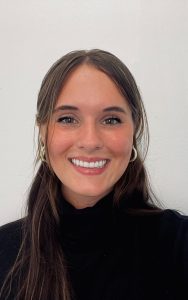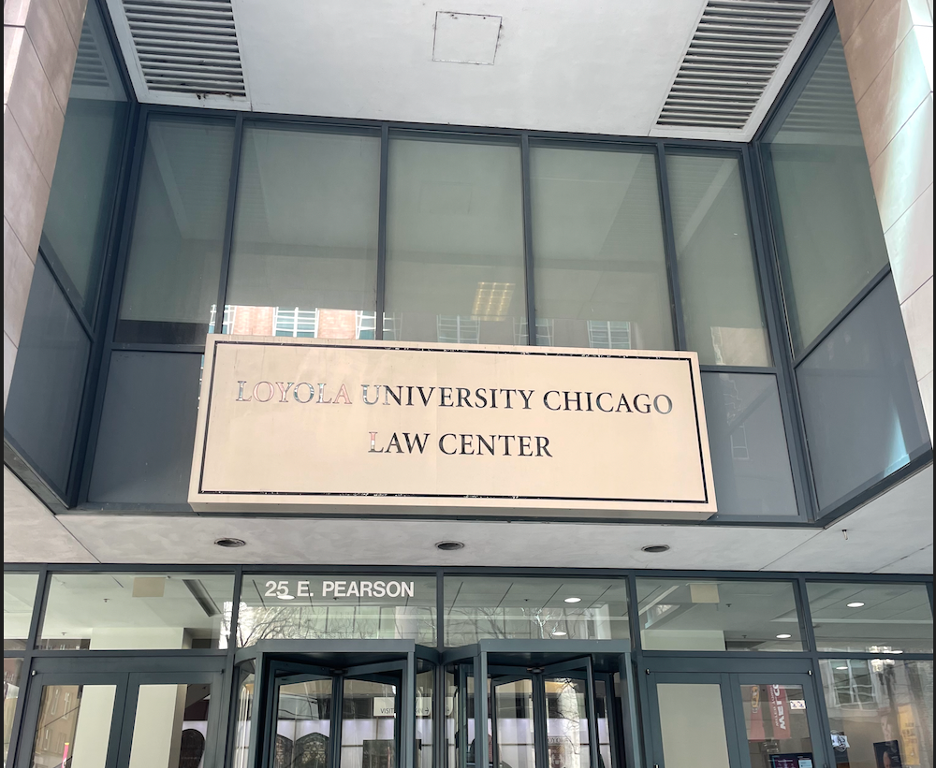I have always been easily overwhelmed with multiple options when making an important decision. When deciding where to go to law school, the important decision-making process regarding my education was downright terrifying – at first. After obtaining my bachelor’s in biology at the University of Cincinnati I worked in oncology clinical research for two years. This experience provided me with the certainty that I had the desire to pursue a legal career in the field of intellectual property (“IP”). I found myself drawn toward IP. It felt like the perfect mix between science and law. IP presented me with a unique opportunity to continue to explore my interest in STEM from a different perspective. After taking the LSAT, I began my school search. Contrary to my previous difficulties with decision-making, I quickly discerned that Loyola University Chicago School of Law (“Loyola”) was the best fit for me to launch my career in IP.
IP at Loyola: More Than Just a Program
A lot of law schools have some form of an IP program. I initially feared this would be an obstacle when trying to make a decision. Loyola, however, was the first school I came across that did more than just offer IP courses. Unlike many schools, it was clear from early on that Loyola has a network of people and opportunities that actually want to help you succeed in the field of IP. I was excited to see that they have an active student-led IP law society (“IPLS”) as well as a patent law interview program that connects students and patent law employers. You can tell from the minute you walk onto campus that the professors, faculty, and even upper-class students are truly invested in your success. They look at you as more than just a student and teach you to approach everything with a growth mindset. This mentality is valuable in any career path – especially IP.
Pursing IP: A Head Start
Going into my first year (1L) year, all I knew about my courses was that I would not be able to choose them. I didn’t think I would have any opportunity to start learning about IP until my 2L year. Loyola offers IP learning opportunities for 1Ls and this was so exciting to me.
I took advantage of these opportunities by taking Professor Jennifer Woods’ IP legal writing course and Professor Cynthia Ho’s “Global Access to Medicine: A Patent Perspective” spring semester elective. Before law school, legal writing was one of the courses I worried about because I thought it would be difficult. Having the ability to learn it through an IP perspective made it one of my favorite classes during my first semester. For example, each of the assignments in the IP legal writing course is centered on IP hypothetical cases, such as cases involving violations of patents and trademarks. My favorite assignment thus far has been a trial brief concerning the violation of a copyright. The assignment taught me how to write in an argumentative manner, as well as how to identify defenses and counterpoints to opposing arguments. Approaching these assignments was a great way to learn both about legal writing and different areas of IP. Exploring the other types of IP opened my interest to the vast opportunities within the field of IP. The class discussions from this course also allowed me to learn from an experienced practicing IP attorney. Professor Woods makes the class enjoyable with her many interesting stories from her legal experience.
I was also lucky to have Professor Cynthia Ho, the director of Loyola’s IP program, as my Civil Procedure professor during my first semester. Professor Ho was particularly active in sharing any IP-related networking and extracurricular opportunities with students inside and outside of her classroom. For example, she encouraged me to apply to be a member of IP Bytes. I was happy that I applied and was accepted, so that I can write and publish blogs about different IP topics. She also took the time outside of her schedule to give lectures to my IP legal writing class. In the first lecture, she gave us an introductory lesson, going over all of the different areas within the field of IP. She even took the time to answer any of our questions as well as to individually review our eligibility for the USPTO “patent bar” exam. The USPTO patent bar exam is the exam that is required to gain the registration necessary to do patent prosecution before the U.S. Patent and Trademark Office (“USPTO”). Patent prosecution involves applying to obtain a patent from the USPTO for an invention. I learned that there are different requirements, such as a degree in particular fields of STEM to qualify for the exam. Figuring out whether or not you are qualified can be daunting. Professor Ho helped explain the requirements and what patent prosecution entails in a very encouraging and engaging manner. Her enthusiasm for the field of IP is not only apparent but also infectious.
As a new member of IPLS, I was also provided with a mentor to help me through life as a 1L. An IPLS mentor is an upper-class student with an interest and experience in IP. My mentor, Daniel Henry, was particularly helpful in suggesting classes and study methods and even helped me get my 1L summer position at Greer, Burns & Crain (an IP law firm). He not only suggested applying to the firm but also helped me refine my questions and responses before my interview. As a student with experience working in a similar IP firm, his information was very helpful. Having support from a mentor during a very stressful application process made the experience much easier. Now I can spend the rest of my spring semester looking forward to gaining real experience in IP and patent law!
IP is the Path for Me
With so many directions to go in, it can be hard knowing what you want to study in law school after your first year. Although I started law school interested in IP, I didn’t know anything about it. That scared me. However, as soon as I felt the support of my professors and classmates, that fear started to ease. Having the opportunity to take the IP legal writing course helped transform that fear into confidence and assured me that I was on the right track. I truly believe that I would not have discovered that confidence this early on anywhere other than Loyola.

Hannah Dawson
Assistant Blogger
Loyola University Chicago School of Law, JD 2025
